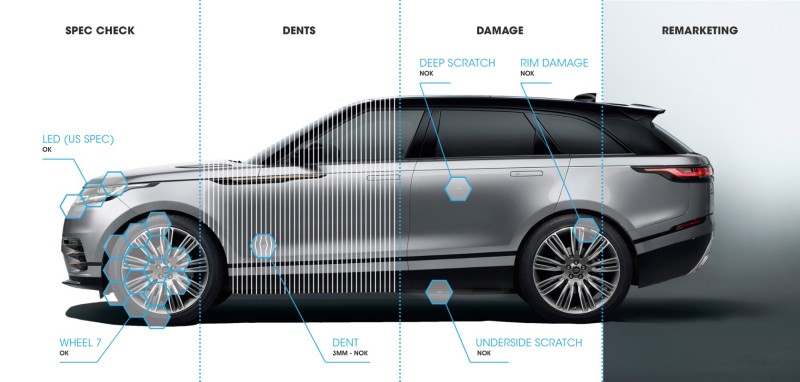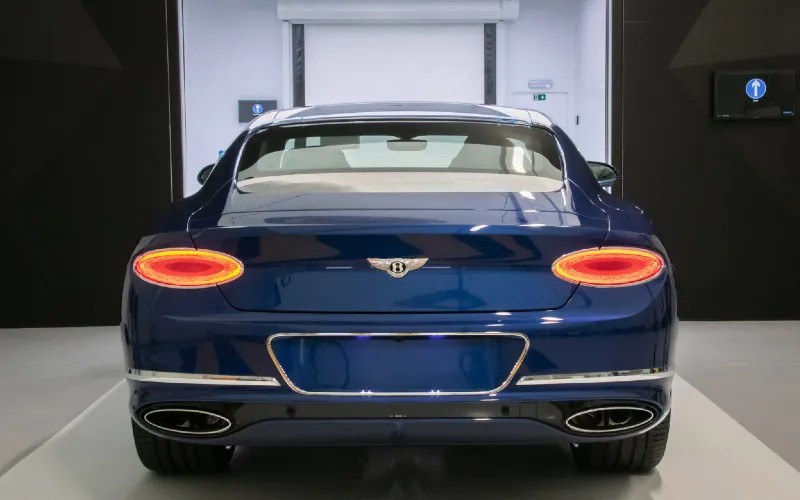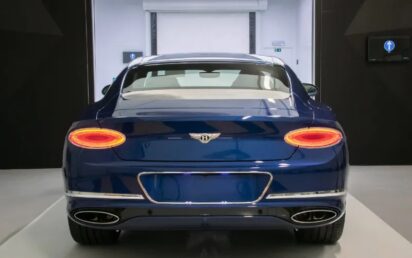DeGould has become a global leader in automated vehicle inspections for automotive manufacturers and their supply chain.
While the focus is now on OEMs and the finished vehicle supply chain, it was the rental sector that gave the business its origins a decade ago.
In 2011, entrepreneur Dan Gould (pictured below) experienced his lightbulb moment.
“I witnessed a dispute between a car rental company and their customer. The argument that proceeded was phenomenal,” he explains to BusinessCloud.
“When you get the hire car, would you check that you’ve got a parcel shelf? That the wheel jack was there? That there is no damage to the vehicle?”

Gould’s company began work on a drive-through system using cameras to capture the exterior condition of a vehicle.
Jaguar Land Rover had expressed an interest in the technology and so Gould began to test and develop a proof-of-concept system at the automotive giant’s plant in Solihull, founding a company that would go on to change an industry mindset.
DeGould, ninth on our TransportTech 50 ranking late last year, launched Auto-scan, a booth that captures high-definition images around a stationary vehicle in optimal lighting conditions. The Auto-compact system followed: an AI-powered inspection system that uses a combination of structured, dark and white lighting fields and is capable of capturing hundreds of images of a moving vehicle in seconds.
TransportTech 50 – UK’s most innovative transport technology creators for 2021
The digital vehicle inspection process uses artificial intelligence to detect damage on the exterior of the vehicle.
“A PLC encoder senses where the vehicle is and triggers the cameras at the right point to capture the front, rear, sides, top and wheels on the vehicle,” chief commercial officer Ed Jones, who led the company as CEO, explains to BusinessCloud.
The addition of machine learning models trained on a dataset of more than 100 million images – all captured by DeGould – is the real game-changer, according to Jones, who joined the company five years ago.
“We used to be all installers, mechanics and engineers; we now have a full team of machine learning specialists,” he says. “The system has become far more intelligent: as the vehicle passes through the system, the images are captured and processed in the cloud by our AI algorithms and any defects are flagged up. We can then alert the customer in real-time.”
DeGould, based in Exeter and now employing 50 people, continues to work closely with Jaguar Land Rover; other OEM customers include Bentley, Toyota, Lamborghini, Rolls Royce, Ford and Daimler. Its systems are used to find defects before vehicles leave the manufacturing plants – and can also identify when a vehicle has been built to the wrong specification.
“Vehicles are sometimes built to the incorrect specifications: it might be something as simple as a black grille when it should be silver; a missing badge; or the wrong wheels,” says Jones.
“This is powerful because if a manufacturer finds a defect or build issue, the cost of fixing it at the plant is on average a tenth of doing it at a dealership: if the dealer finds it, they can charge in excess for workshop hours or parts replacement.
“By rectifying issues in plant, the customer gets the vehicle as quickly as possible, at the best standard possible – while the OEM has the fewest number of recalls.”
With millions of cars exported around the world every year, the finished vehicle logistics sector also plays a vital role. “Let’s say JLR builds a £100,000 Range Rover: they might give it to a third-party company at the end of the production line, who takes it off and hands it to another third party firm; they then give it to the port; the port gives it to the shipping line; the shipping line then hands it to a foreign port; and so on and so on,” explains Jones.
“Eventually it gets to the dealer and finally to the customer – and the customer sees a scratch. Someone’s going to pay for it, and it’s not the customer.
“If you have as many inspection systems as possible during the supply chain you can identify exactly where the damage took place – and that company would get the bill.”

DeGould’s vision of a future where vehicles have a digital passport documenting their state throughout the process is now coming to fruition. Wallenius Wilhelmsen, the largest shipping line for finished vehicle logistics in the world, joined as a customer and investor as part of a £6m funding round last year.
Despite JLR’s support and widespread acceptance from other manufacturers today, Gould says getting to this point was a painstaking process.
“It wasn’t the product which was the hardest thing to sell – it was the concept. That was still the case up until probably last year or the year before.
“The other problem we had is as we were the only one in the industry selling the system, procurement departments weren’t happy in signing off on it as they didn’t understand the system.
“Now other companies like ours have come along and banged the drum and everyone in the automotive sector has accepted that this system is the industry standard.”
Jones agrees with that sentiment. “Our competitors help us to grow the entire sector. If other companies have nodes two and four in the supply chain and we have one, three, five and six, that’s great: it means there is a complete digital passport.
“In the world of automation and digitisation, collaboration is key to shifting the whole landscape.
“From an OEM and finished vehicle logistics perspective, we are number one in the world for new vehicles – and that’s where our focus is.”

